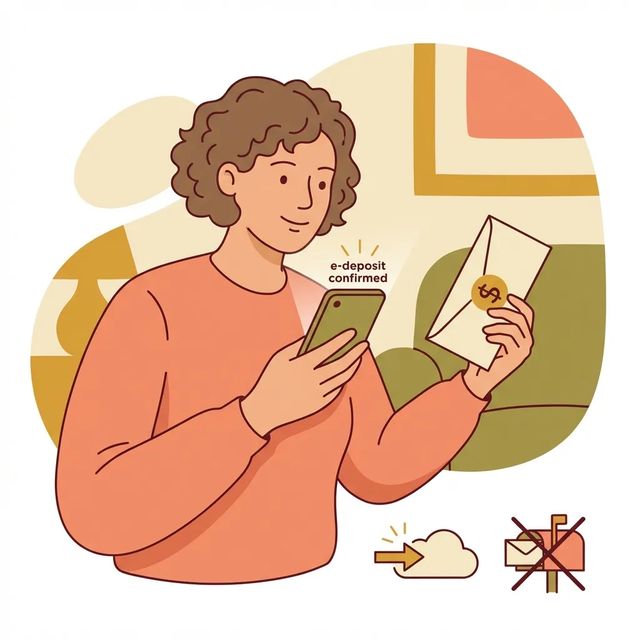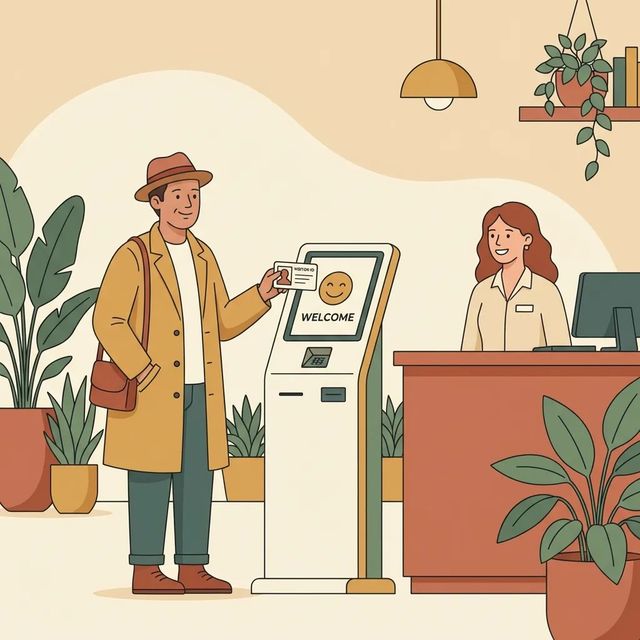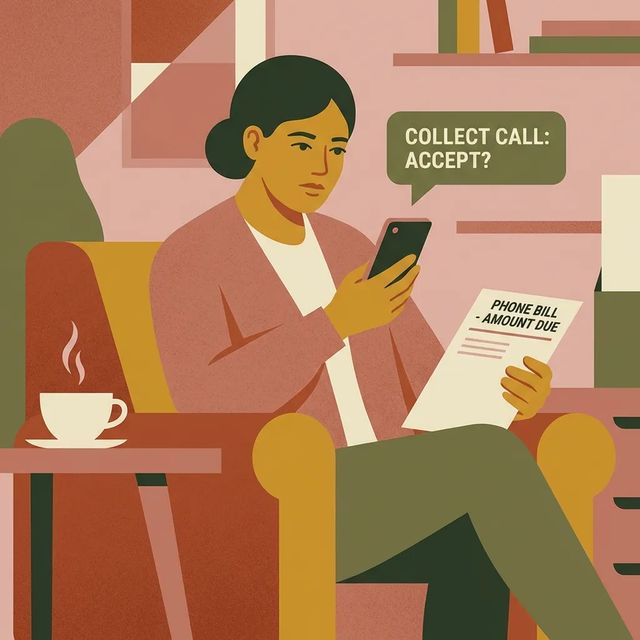Manatee Jail, FL
Explore
Find an Inmate at Manatee Jail, FL
Search for a loved one and send messages and photos in minutes.

Guides for This Facility

5 Ways to Send Money to an Inmate at Manatee Jail (And Which One Is Fastest)
Need to put money on someone's account at Manatee Jail? You have five facility-approved options: the Visitation Center cash kiosk (Cobra Cash Machine), online deposits through SmartDeposit (PLC #5500), phone deposits, and mailing a money order. For speed, the kiosk and SmartDeposit are your best bets—both let you complete the transaction immediately as long as you have the inmate's booking number. Whichever method you choose, double-check that booking number before you hit submit. Some transactions can't be canceled and aren't refundable.
Read Guide
How to Schedule Your First Visit at Manatee Jail's Visitation Center
Scheduling your first visit at Manatee Jail's Visitation Center is straightforward once you know the timing rules. Follow these steps to book your visit and arrive prepared.
Read Guide
How to Set Up Phone Calls from Manatee Jail: OffenderConnect Registration Guide
Setting up phone calls from Manatee County Jail comes down to one thing: getting ready to accept collect calls. Here's how the system works, how to register with OffenderConnect/AdvancePay, and what to know about managing your account.
Read GuideAt a Glance
Visitation
- Visits must be scheduled by registered visitors on manateefl.gtlvisitme.com up to seven days in advance or by phone for first-time visits.
- Non-contact video visitation is held at the Visitation Center, 2705 County Line Road, Palmetto, FL, open daily 8 a.m.–1 p.m. and 2 p.m.–7 p.m.
- Each inmate may have up to three one-hour visits per week with a maximum of two visits per day, and up to three visitors at one time including children.
Communication
- PCS/OffenderConnect is the inmate phone provider for Manatee Jail.
- To pre-pay for collect calls use 1-800-483-8314, Facility #20105, or enroll at www.offenderconnect.com.
- Inmates can place collect calls but cannot receive incoming telephone calls at the jail.
Sending Money
- Mail money orders payable to 'MCSO Inmate Account' and include the inmate name and booking number on the memo line.
- Online deposits are processed through SmartDeposit using PLC# 5500 and are nonrefundable.
- Phone deposits are available at 1-866-394-0490 Monday–Friday 8:00 AM–8:00 PM.
Contact Info
- Manatee County Central Jail is located at 14470 Harlee Road, Palmetto.
- Visitation is by appointment only; first-time visitors should call (941) 747-3011 ext 2902 to schedule a visit for the following day.
- Non-contact video visits take place at the Visitation Center, 2705 County Line Road, Palmetto, and are available daily 8 a.m.–1 p.m. and 2 p.m.–7 p.m.
Facility Info
- Central Jail address: 14470 Harlee Road, Palmetto.
- Intake includes property intake, medical screening, fingerprinting, photographing, and a warrants check.
- Arrestees who remain in custody appear before a judge within 24 hours.
Based on official sources and community feedback. Learn how we verify
Topic Overviews
Visitation
All visits at Manatee Jail require an appointment. Register on the visitation website, then schedule up to seven days in advance (or as late as one day before). First-time visitors can call to book a visit for the following day during posted hours. Visits are non-contact video sessions held at the Visitation Center, 2705 County Line Road, Palmetto, FL. Hours are 8 a.m.–1 p.m. and 2 p.m.–7 p.m. daily. Each inmate can receive up to three one-hour visits per week, with a maximum of two visits per day. Up to three visitors can attend at once, including children. Anyone under 18 must be accompanied by an adult unless married with valid documentation. Arrive no earlier than 15 minutes before your scheduled time—late arrivals may be canceled. All visits are monitored and recorded, and only limited personal items are allowed inside.
Read full guideCommunication
Manatee County Jail uses PCS/OffenderConnect for inmate phone service. To pre-pay for collect calls, call 1-800-483-8314, use Facility #20105, or enroll at www.offenderconnect.com. Inmates can place outgoing collect calls but cannot receive incoming calls. Jail staff won't relay personal messages from callers. Some Florida facilities also offer email-style messaging, tablet messages, and remote video visits—availability depends on the facility and vendor. Generally, jail phone systems only allow outgoing calls through vendor platforms and often require prepaid accounts or vendor-managed billing.
Read full guideSending Money
Manatee County Central Jail offers several deposit options: mail, online, phone, or an on-site kiosk. Pick whichever works best for your timeline. For mail deposits, buy a money order payable to "MCSO Inmate Account," write the inmate's name and booking number on the memo line, and send it to Manatee County Central Jail, 14470 Harlee Road, Palmetto, FL. Online deposits go through SmartDeposit using Visa or MasterCard—use facility PLC# 5500. These transactions can't be canceled and refunds aren't allowed, so double-check before submitting. Phone deposits are available at 1-866-394-0490, Monday–Friday 8:00 AM–8:00 PM. The Visitation Center kiosk at 2705 County Line Road, Palmetto accepts cards and cash in $5 increments (no $1 bills) from 7:45 AM to 7:30 PM. Inmates can't keep cash or cards—valuables are inventoried and held until release.
Read full guideContact
Manatee County Central Jail is at 14470 Harlee Road in Palmetto. To coordinate a visit or confirm procedures, call (941) 747-3011 ext 2902 or email InmateVisitation@manateesheriff.com during posted hours. All visits require an appointment. First-time visitors should call ext 2902 during specified hours to schedule for the following day. Non-contact video visits take place at the Visitation Center, 2705 County Line Road, Palmetto, open daily 8 a.m.–1 p.m. and 2 p.m.–7 p.m. Intake processing at the jail includes property intake, medical screening, fingerprinting, photographing, and a warrants check. Professional visitors who arrive more than 15 minutes late or check in online may have their visits automatically canceled—call (941) 747-3011 ext 2813 for help.
Common Questions
Showing 6 of 16How do I register as a professional visitor at Manatee Jail?
Complete the PREA professional visitor forms and email them to ProfessionalVisitors@manateesheriff.com. You’ll also need to register and verify with ViaPath; once verified, your account is updated to “Professional Visitor,” and you can schedule remote video visits through ViaPath.
VisitationWhat happens if I arrive late or miss my scheduled Manatee Jail visit?
Don't arrive more than 15 minutes before your scheduled start. Late check-ins after the start time aren't allowed, and if you show up 15 minutes after your scheduled time, the visit is automatically canceled. For scheduling help, call the facility help line during posted hours.
VisitationCan I deposit money for an inmate at the Visitation Center?
Yes. You can deposit funds at the Visitation Center using the on-site Cobra Cash Machine, which accepts cash in multiples of $5 up to $100 and also takes debit and credit cards; for visitation or video support issues, contact ViaPath technical support.
VisitationHow do I set up pre-paid phone service for someone at Manatee Jail?
Manatee Jail uses PCS/OffenderConnect. To pre-pay for collect calls, call 1-800-483-8314, use Facility #20105, or enroll at www.offenderconnect.com.
CommunicationCan someone call an inmate at Manatee Jail?
No. Inmates at Manatee Jail can’t receive incoming telephone calls; they can place outgoing collect calls instead. Jail staff will not deliver personal messages from callers.
CommunicationDoes Manatee Jail offer email, messaging, or video visits?
Some Florida facilities offer messaging, tablet/email services, and remote video visits, but availability and features vary by facility and vendor. Check the vendor platform or the facility’s communications info to see what’s offered at this jail.
CommunicationMore Guides
Ready to Connect?
Search for your loved one to start communicating today
Did You Know?
This page covers Manatee Jail, FL. Professional visitors need to complete PREA entry forms and register with ViaPath for remote video visitation approval.
This guide is compiled from official facility documentation and community feedback. Learn how we verify
